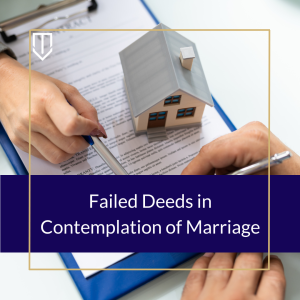 It is an unfortunate fact that many marriages don’t make it out of the engagement stage. While this can be a difficult time for all involved, the situation can only become more dire when real property is involved.
It is an unfortunate fact that many marriages don’t make it out of the engagement stage. While this can be a difficult time for all involved, the situation can only become more dire when real property is involved.
Commonly, one owner of real property will add their partner to the house’s title shortly before the marriage occurs. Usually, they do this because they are under the impression that the marriage is about to happen. But when the partner calls the marriage off, the property owner is now faced with the problem of title. Under the law, the former partner is now an owner of the property.
In these instances, Civil Code section 1590 allows for the property owner to recover their title, although this will usually require filing a quiet title lawsuit. However, quiet title law can be difficult to understand, and in addition, litigants will need to take care not to blow the applicable statute of limitations.
 California Partition Law Blog
California Partition Law Blog


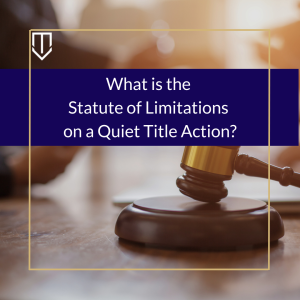 The Legislature has not established a specific statute of limitations for actions to quiet title. (Salazar v. Thomas (2015) 236 Cal.App.4th 467, 476.) Instead, the statute of limitations is based on the underlying theory of relief for the action. (Id.) For example, if the underlying theory is relief for trespass or injury to real property, then the applicable statute of limitations would be three years. (Code of Civil Procedure § 338.)
The Legislature has not established a specific statute of limitations for actions to quiet title. (Salazar v. Thomas (2015) 236 Cal.App.4th 467, 476.) Instead, the statute of limitations is based on the underlying theory of relief for the action. (Id.) For example, if the underlying theory is relief for trespass or injury to real property, then the applicable statute of limitations would be three years. (Code of Civil Procedure § 338.)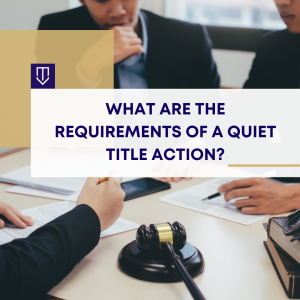
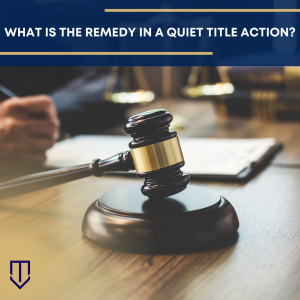 A motion to determine title is a motion to the court requesting that the court establish title to a piece of real property. Typically, a motion to determine title shows up in the court as a quiet title action. A quiet title action is brought when a litigant seeks to establish that they have an ownership interest in the subject property and refute any adverse claims against the litigant. It follows that to prevail on a motion to determine title; one must show that they hold some ownership interest in the subject property.
A motion to determine title is a motion to the court requesting that the court establish title to a piece of real property. Typically, a motion to determine title shows up in the court as a quiet title action. A quiet title action is brought when a litigant seeks to establish that they have an ownership interest in the subject property and refute any adverse claims against the litigant. It follows that to prevail on a motion to determine title; one must show that they hold some ownership interest in the subject property. 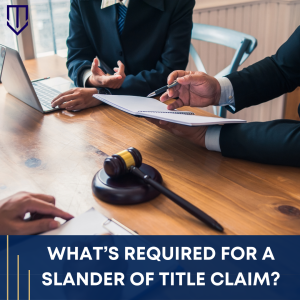 Slander of title is quite the unique cause of action. As the name implies, it involves defamatory or slanderous activity but not against any person or personal interest. Instead, a slander of title involves activity that calls the state of your title into doubt (by, for example, filing an unwarranted lis pendens) that diminishes the value of your property.
Slander of title is quite the unique cause of action. As the name implies, it involves defamatory or slanderous activity but not against any person or personal interest. Instead, a slander of title involves activity that calls the state of your title into doubt (by, for example, filing an unwarranted lis pendens) that diminishes the value of your property.